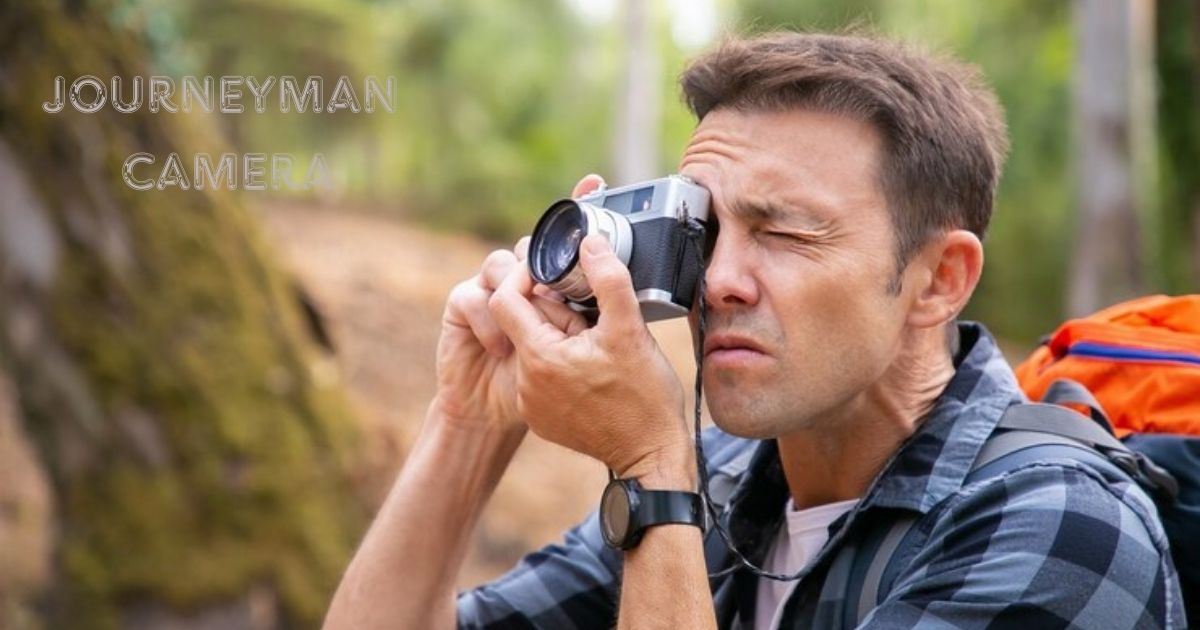In the world of filmmaking and television production, the role of a journeyman camera operator is crucial. This individual operates cameras in various settings, capturing the footage that forms the foundation of visual storytelling. But what exactly does a journeyman camera operator do, and how do they differ from other camera professionals? In this comprehensive guide, we’ll explore the responsibilities, skills, and career paths of a journeyman camera operator, making it easier for aspiring professionals to understand this dynamic role.
What is a Journeyman Camera Operator?
A journeyman camera operator is a skilled professional who works on film, television, and video productions, operating cameras to capture visual content. Unlike a novice, a journeyman is someone with significant experience, often working under the guidance of directors or cinematographers to achieve the visual style required for a project. They can adapt to various camera equipment and production settings, showcasing a high level of technical expertise.
Key Responsibilities of a Journeyman Camera Operator
Journeyman camera operators have a range of duties, depending on the production they’re working on. Some of their core responsibilities include setting up and adjusting cameras, framing shots, and ensuring proper lighting for each scene. They work closely with the director and other crew members to align their work with the creative vision of the project. Their work goes beyond just pointing a camera; they are responsible for capturing the essence of the story visually.
Difference Between Journeyman and Master Camera Operators
While a journeyman camera operator is experienced, they are not yet considered a master in the field. The term “master” implies a deeper level of expertise, often gained over decades of work. Journeymen are still refining their skills and learning new techniques, but they have moved beyond the beginner stage. The distinction is important, as journeymen are expected to handle more complex tasks independently than apprentices or novices.
Essential Skills for a Journeyman Camera Operator
To excel as a journeyman camera operator, certain skills are necessary. First and foremost, a thorough understanding of camera equipment is vital. This includes not only knowing how to operate various types of cameras but also understanding their limitations and advantages. Another critical skill is the ability to work well under pressure, as filming often involves tight schedules and unexpected challenges. Communication skills are also crucial since camera operators must collaborate with directors, cinematographers, and other team members.
The Importance of Technical Knowledge
A journeyman camera operator must have a deep technical understanding of cameras, lenses, and related equipment. Knowing how to adjust focus, exposure, and frame rate can make or break a shot. Additionally, familiarity with different types of cameras—such as DSLRs, digital cinema cameras, and handheld video cameras—allows the operator to choose the right tool for each job. This technical knowledge extends to post-production, as understanding how footage will be edited can influence how it is shot.
Camera Movement and Framing Techniques
One of the defining skills of a journeyman camera operator is their ability to move the camera effectively. Whether it’s a smooth tracking shot or a quick zoom, camera movement plays a critical role in how a scene is perceived. Journeymen must also have a strong grasp of framing techniques, understanding concepts like the rule of thirds, leading lines, and depth of field to create visually appealing shots that tell a story.
Adaptability in Different Production Environments
Journeyman camera operators work in a variety of environments, from studio sets to outdoor locations. Being adaptable is essential, as different settings present unique challenges. In a controlled studio, lighting and space are usually optimized for filming, but outdoor shoots may require dealing with natural lighting, unpredictable weather, and challenging terrain. The ability to adjust and think on your feet is what separates a good camera operator from a great one.
Collaboration with the Production Team
A journeyman camera operator does not work in isolation. They are part of a larger production team that includes directors, cinematographers, sound engineers, and actors. Good communication is essential to ensure that everyone is on the same page regarding the look and feel of the footage. Camera operators often take direction from cinematographers or directors of photography but may also provide input on how to achieve specific shots.
Understanding the Director’s Vision
A key part of a journeyman camera operator’s job is to translate the director’s vision into visual images. This requires not only technical know-how but also a creative eye. Directors may have specific ideas about how they want a scene to look, but it is the camera operator’s job to make that vision a reality through careful framing, movement, and lighting.
The Role of Lighting in Camera Operation
Lighting is one of the most important elements of camera operation, and journeymen must understand how to work with it effectively. Whether it’s natural light or artificial setups, proper lighting ensures that the subject is clear, shadows are controlled, and the mood of the scene is conveyed. Camera operators often work closely with lighting technicians to achieve the best possible results.
Career Path and Opportunities
Many journeyman camera operators start as camera assistants or apprentices, gradually working their way up as they gain experience. From here, they may specialize in certain types of filming, such as news, sports, or feature films. With time and dedication, a journeyman can eventually become a master camera operator or even transition into roles such as director of photography or cinematographer.
Training and Education Requirements
While formal education is not always required, many journeyman camera operators have degrees in film production or a related field. Hands-on experience is also crucial, and many operators start by working on smaller projects or as camera assistants. Workshops, online courses, and certifications can further enhance their skills and career prospects.
Staying Up-to-Date with Technological Advances
The world of camera operation is constantly evolving with new technologies. From drones to virtual reality cameras, staying current with these innovations is essential for journeymen looking to stay competitive. Continuous learning and adaptability are key traits of a successful camera operator in today’s fast-paced media environment.
Challenges Faced by Journeyman Camera Operators
The job of a journeyman camera operator is not without its challenges. Long hours, unpredictable schedules, and physically demanding work are all part of the job. Additionally, the pressure to capture perfect shots under tight deadlines can be stressful. However, for those passionate about visual storytelling, these challenges are outweighed by the rewards of seeing their work on screen.
Conclusion
Becoming a journeyman camera operator is a journey of mastering technical skills, adapting to different environments, and collaborating with a team to bring a director’s vision to life. While the path may be challenging, the opportunity to work on diverse projects and continue learning makes it a rewarding career for those passionate about visual storytelling.
FAQs
What does a journeyman camera operator do?
A journeyman camera operator handles the technical aspects of filming, including setting up cameras, adjusting lighting, and capturing footage.
How is a journeyman camera operator different from a master?
A journeyman has substantial experience but is still developing their skills, while a master has reached a higher level of expertise.
Do I need formal education to become a journeyman camera operator?
While not mandatory, many operators have degrees in film production or related fields, along with hands-on experience.
What skills are important for a journeyman camera operator?
Technical knowledge, communication, adaptability, and an eye for framing and camera movement are essential.
What are the career prospects for a journeyman camera operator?
Journeymen can advance to become master operators or move into related roles such as cinematographers or directors of photography.











